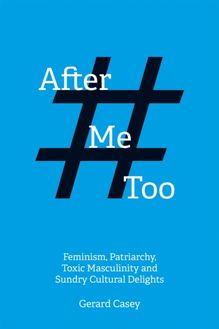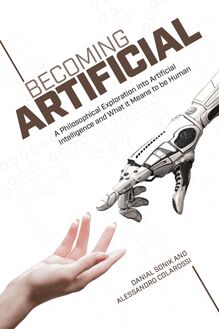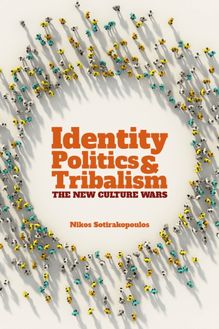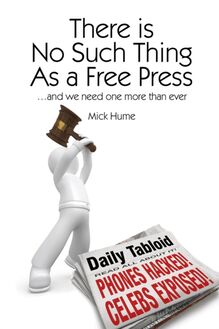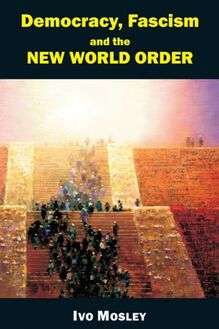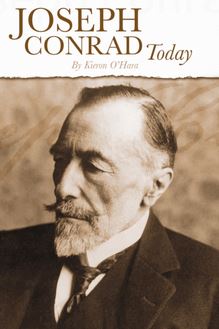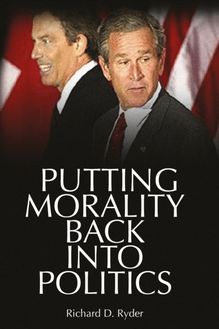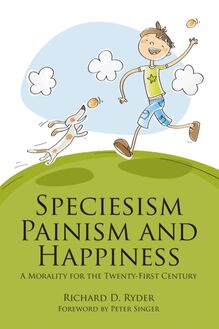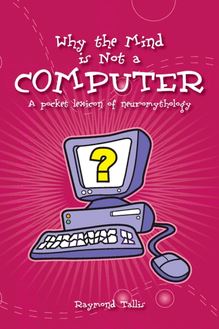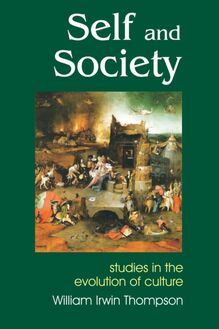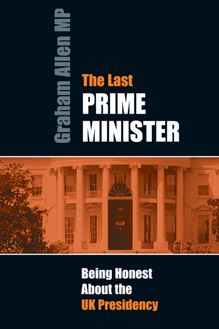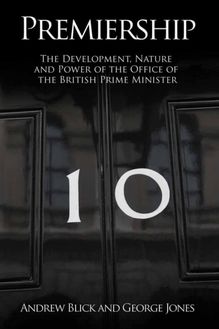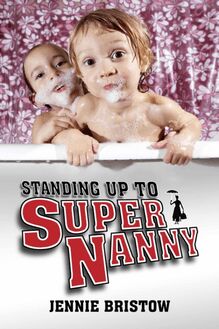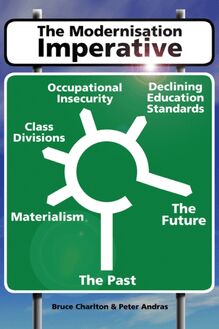-
 Univers
Univers
-
 Ebooks
Ebooks
-
 Livres audio
Livres audio
-
 Presse
Presse
-
 Podcasts
Podcasts
-
 BD
BD
-
 Documents
Documents
-
- Cours
- Révisions
- Ressources pédagogiques
- Sciences de l’éducation
- Manuels scolaires
- Langues
- Travaux de classe
- Annales de BEP
- Etudes supérieures
- Maternelle et primaire
- Fiches de lecture
- Orientation scolaire
- Méthodologie
- Corrigés de devoir
- Annales d’examens et concours
- Annales du bac
- Annales du brevet
- Rapports de stage
La lecture à portée de main
Vous pourrez modifier la taille du texte de cet ouvrage
Découvre YouScribe en t'inscrivant gratuitement
Je m'inscrisDécouvre YouScribe en t'inscrivant gratuitement
Je m'inscrisEn savoir plus
Vous pourrez modifier la taille du texte de cet ouvrage
En savoir plus

Description
Sujets
Informations
| Publié par | Andrews UK |
| Date de parution | 10 octobre 2011 |
| Nombre de lectures | 0 |
| EAN13 | 9781845403423 |
| Langue | English |
Informations légales : prix de location à la page 0,0324€. Cette information est donnée uniquement à titre indicatif conformément à la législation en vigueur.
Extrait
Title Page
THE ECONOMIC IMPERATIVE
Leisure and Imagination in the 21st Century
John Zerilli
Publisher Information
Copyright © John Zerilli, 2012
The moral rights of the author have been asserted.
No part of this publication may be reproduced in any form without permission, except for the quotation of brief passages in criticism and discussion.
Originally published in the UK by Societas
Imprint Academic, PO Box 200, Exeter EX5 5YX, UK
Originally published in the USA by Societas
Imprint Academic, Philosophy Documentation Center
PO Box 7147, Charlottesville, VA 22906-7147, USA
Digital version converted and published in 2011 by
Andrews UK Limited
www.andrewsuk.com
Dedication
Dedicated to my parents,
Emanuele and Silvana
Quotes
The really profound changes in human life have all had their ultimate origin in knowledge pursued for its own sake.
Alfred North Whitehead
An Introduction to Mathematics
I’d have gone through seminary and ordination and all the years intervening for that one moment… There are a thousand thousand reasons to live this life, every one of them sufficient.
Reverend John Ames
in Marilynne Robinson’s Gilead
Preface
You often hear a person ask, or get asked, “So, what is it you do?” And it is often enough assumed that what passes for an answer, passes for the person; that somehow what a person does to earn a living provides some secret clue into who they are. And so it may. But it isn’t so much one’s labour as one’s leisure that provides the true index of life. And those pursuits often disparaged as merely useless turn out to be, upon further reflection, among the most important preoccupations people have.
This simple belief, as obvious as it is prone to be obscured, animates the essays collected in this volume. To drive the point home, I have given ample space to exploring the artistic, scientific and religious dimensions of life. I end up providing what, I think, amounts to a synthetic account of art, science and religion. In theoretical physics, it is said that at some point in space-time the four cosmological forces unleashed after the big bang were of equal strength, and that it is possible to conceive of these several forces, at that point, as different expressions of the same force. I think this is a useful analogy for the driving force in human culture, which unleashes itself in three different forms, the artistic, the scientific, and the spiritual, though they are, in essence, so many illustrations of the same theme.
The production of any piece of writing more often than not indicates that the writer is compelled to say something new. At this point in literary history, it is difficult to be original; yet there is always new perspective to be gained when the apparently-same thing is stated by another, in different words, with different emphasis, from a unique outlook and with renewed vigour. We all vary in our experiences of the same phenomenon and this fact accounts, to a great degree, for the enduring appeal of the study of history, a subject which itself inheres in a multiplicity of viewpoints. In recent times, I have felt something of this compulsion to “say something,” although to what extent my ruminations have been those of others I cannot say. Certainly, the thoughts which are expressed here have been privately formulated, the message uniquely impressed on me and the longing to express it piqued by certain attitudes I have encountered in commercial practice and the professions, where the prevailing mindset seems to hold, as a matter of principle, that there is only small scope for intellectual leisure in a world of noise, concrete and steel.
Readers will note about the content a certain pulse-taking quality. Where claims are made about developments, say, in intellectual history, these are not backed up by anything save what must be regarded as genial conversation. This style is deliberate as the book is not intended to be a scholarly account so much as a reflective one. Where footnotes do appear, they serve as light distractions, excursions into the minds of others. The book is deliberately short, elementary and may be read in one sitting. It is not a work of theory. It is written in the belief that leisure is one of humanity’s richest possessions, and in high danger of being lost. In most of the world, people live in conditions not conducive to leisure. And yet some of the poorest people in the world have an abler conception of leisure than the wealthiest. One man, from a small Pacific island, once attempted to explain to me how obvious it was that life at its most satisfying should be like a coconut. This statement seemed to contain for him all the truths of the Western metaphysics, and, if his own cheerful disposition was anything to go by, it seemed to work just as well, if not better.
The economists, whose true occupation it is to maximize our opportunities for leisure, have failed us. And politicians, who are just ordinary administrators with a flair for deceit, cannot be expected to do much more than run departments, in spite of how intense and persistent their illusions may be as to their own importance. True leaders are found in all sorts of places, schools and universities, hospitals, charitable institutions, perhaps last of all in parliaments, though there are bound to be exceptions, even some honourable ones.
Work, of course, can be tremendously satisfying, and if there is work to be done, you might as well enjoy doing it. If you have been unusually blessed in your calling, you may even be able to treat it as a form of leisure. Television culinarians might feel this way about preparing and eating exquisite meals in front of cameras. Some people, however, are afraid of leisure. Why? Because, beyond getting a measure of sleep and relaxation, they don’t know what to do with it. As a rule, they will pathologically avoid leisure and throw themselves into whatever activity or frenzy will allow them to forget how terrible a thing it is simply to be.
Inasmuch as the book posits a connection between art, science and religion, the flavour of the material will inevitably be philosophical. But this fact alone should not frighten anyone away. The credentials of a true philosopher need not consist in formal undergraduate training or membership of a cohort of college conscripts who have made philosophy their special study. Anyone who is perplexed or bemused by the deeply mysterious nature of the world is eminently suited to grapple with the problem it poses; and anyone who labours under the shadow of the large question mark that is cast over our daily activities is well-equipped to give their fellow man at least an insight into their own mode and thought of life. Nevertheless, it remains true what Schopenhauer said, that truth will always be of few men (paucorum hominum).
J. ZERILLI
Author’s Additional Note
I wrote this book when I was 25 years old. For a number of reasons, including neglect, study abroad and various other distractions, I was unable to have this material published earlier. Added to that there was the delay of being placed in a long publication queue when my production editor, the Reverend Anthony Freeman, agreed to publish the work.
Reading over the page proofs now, at the age of 29, I have to say that I have not substantially departed from the argument. In fact, I am even more confirmed of its importance today than when I first set it down four years ago.
J.Z.
Introduction: The Problem Stated
Russell’s famous essay, In Praise of Idleness (1932), contains a fragment which goes a long way towards identifying the themes that are central to the present discussion.
In the past, there was a small leisure class and a larger working class. The leisure class enjoyed advantages for which there was no basis in social justice; this necessarily made it oppressive, limited its sympathies, and caused it to invent theories by which to justify its privileges. These facts greatly diminished its excellence, but in spite of this drawback it contributed nearly the whole of what we call civilisation. It cultivated the arts and discovered the sciences; it wrote the books, invented the philosophies, and refined social relations. Even the liberation of the oppressed has usually been inaugurated from above. Without the leisure class, mankind would never have emerged from barbarism.
There can be no doubt that leisure, not money, is what “makes the world go round”. It is the focus of most of the appeals commercial enterprise makes to our disposable income, generates much of the demand that consolidates national output and makes possible from what is seemingly inert the activity, industry and inventiveness which are those vital prerequisites of our civilized manner of life. The problem in view here is that in the heat of effort we forget that the leisurely impulse is what secures for us the claim to humanity.
These essays attempt to exemplify the priority of leisure—and the life-enhancing activities which are made possible by it, chiefly among them speculation and creative reflection—to all forms of productive capacity broadly conceived. True, these activities may be pleasures of the quieter and intellectual kind; but all genuine and lasting insights—of the type which change whole societies or give rise to signal transformations in the relationship between individuals and their environment—are often enough born in sanctuaries of quiet contemplation and forethought. Action without forethought, Durant says, tends to follow a straight line, whereas “thought is roundabout, and loves flank attacks. The man of action rushes into play courageously, succeeds now, fails then; and sooner or later wishes t
-
 Univers
Univers
-
 Ebooks
Ebooks
-
 Livres audio
Livres audio
-
 Presse
Presse
-
 Podcasts
Podcasts
-
 BD
BD
-
 Documents
Documents
-
Jeunesse
-
Littérature
-
Ressources professionnelles
-
Santé et bien-être
-
Savoirs
-
Education
-
Loisirs et hobbies
-
Art, musique et cinéma
-
Actualité et débat de société
-
Jeunesse
-
Littérature
-
Ressources professionnelles
-
Santé et bien-être
-
Savoirs
-
Education
-
Loisirs et hobbies
-
Art, musique et cinéma
-
Actualité et débat de société
-
Actualités
-
Lifestyle
-
Presse jeunesse
-
Presse professionnelle
-
Pratique
-
Presse sportive
-
Presse internationale
-
Culture & Médias
-
Action et Aventures
-
Science-fiction et Fantasy
-
Société
-
Jeunesse
-
Littérature
-
Ressources professionnelles
-
Santé et bien-être
-
Savoirs
-
Education
-
Loisirs et hobbies
-
Art, musique et cinéma
-
Actualité et débat de société
- Cours
- Révisions
- Ressources pédagogiques
- Sciences de l’éducation
- Manuels scolaires
- Langues
- Travaux de classe
- Annales de BEP
- Etudes supérieures
- Maternelle et primaire
- Fiches de lecture
- Orientation scolaire
- Méthodologie
- Corrigés de devoir
- Annales d’examens et concours
- Annales du bac
- Annales du brevet
- Rapports de stage
